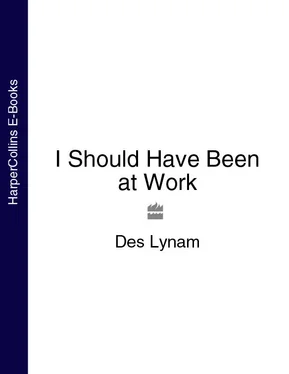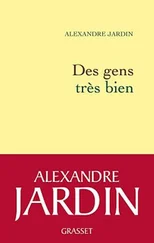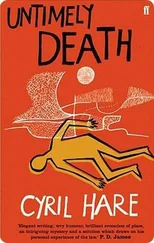On another occasion somebody stopped the videotape machine for the recorded section of me in vision and the director cut back to me live. The viewer must have thought I’d had a stroke and then recovered. It was all great experience for bigger and, in a way, easier things to come.
Since my move from radio, I had also been doing a little stand-in presentation on Grandstand , as well as helping out when the first London Marathon took place in 1981. My role would be to run back and forth over Tower Bridge and interview some of the slower runners ‘on the hoof’.
Of course it was the beginning of a fabulous event, the dream of Chris Brasher and John Disley, which has caught the public’s imagination so dramatically. Now everybody could become a marathon runner, not just those supermen we watched in awe at the Olympic Games. On the day, I ran across the bridge and back maybe thirty times. I might as well have run in the event itself and bitterly regret that I didn’t give it a go when my fitness was rather better than it is now.
Another year I was doing interviews with the finishers and posed one of the dumbest questions of all time. I asked Grete Waitz, the great Norwegian athlete, if she had been pleased with her time: she had just broken the world’s best time for the event, but I didn’t know. My monitor had been on the blink and somehow the director didn’t get the information to me. To viewers, I must have seemed like a right dope.
Presenting a show like Grandstand is quite demanding, particularly so when the presentation is at an event, sometimes in the wind and rain, trying to listen to talkback instructions with a load of ambient noise going on around you. The studio-based shows were more comfortable, and the technicalities more reliable; nonetheless, five hours live on air, and sometime for much longer during the Olympics or other big events, make considerable demands on both mind and body.
I used to be able to get through the five hours, often without having to go to the toilet. I couldn’t do it now. Food was taken on board as the programme went out. I was caught with a mouthful of sandwich on more than one occasion when an event finished abruptly or when the studio director cut back to me suddenly.
The winter programmes, when there was a full football fixture list, involved the presenter commentating on the results as they came in – originally on the teleprinter, later the videprinter. I thoroughly enjoyed this part of the show, exercising my knowledge of players and league positions and sequences of victories or defeats. I usually spent one day a week honing that knowledge: as a supporter of one of the smaller clubs myself, I knew how important these small facts and figures were to the fans around the country, from Aberdeen to Exeter.
Occasionally, with your mind racing, you would make the odd mistake, relying on the editor to correct you. Once I said, ‘Southampton won 2–0, the same result as last year when they won 4–1.’ During the videprinter sequence, we would go live to the grounds for reports from key matches. John Philips, the editor, would sometimes forget to tell me where we were going next and I would prompt him through the viewer. ‘Now where shall we go to next?’ I would say down the camera lens, and Philips would then tell me, ‘Highbury, you prat’, or he would simply tell me to keep talking till they had a reporter on the line. It was fast-moving stuff. Nowadays, Sky Television build a whole programme around scores and results information. It is skilfully presented by Jeff Stelling, in my view their best sports broadcaster by miles. I can see the buzz he gets out of the show. It used to be the same for me.
Martin Hopkins, who directed nearly every Grandstand show I did, was an avid racing man. The custom was that he and the presenter would have a head to head bet on each race we were televising. He invariably won but it kept his interest at a peak.
For some of the years I was doing the show, the whole production team had to prepare quickly a five-minute sports bulletin for the South-East region. There were no reports or live action in this. The presenter simply read the copy put in front of him and hoped that the captions and still pictures fitted. Quite often they did not, and this became just about the hairiest programme that the sports department produced. Mostly, I managed to get out of it, and the broadcast was left to one of the newer faces; but those five minutes were always considerably more difficult than the five hours that had gone before.
While I found Grandstand challenging, presenting it always felt like it was something that came naturally to me. Around this time, I was asked to try something that really, really didn’t come naturally. Not a lot of people know this, but for a time I tried my hand, or voice, at the art of football commentary with BBC Television. Now I was asked to do a test commentary. It was not an ambition of mine but Alec Weeks, the senior football director, and Mike Murphy, the Match of the Day editor, who eventually became my Grandstand boss, thought I would be a useful addition to the commentary team behind John Motson and Barry Davies.
My first attempt was a trial commentary at an international match at Wembley between England and Wales. I did my homework and found the job relatively simple. Football commentary is easy. It’s good football commentary that’s difficult. Weeks wrote to me afterwards. ‘Your voice is clear. You have a wide range, your identification is sharp but your timing is appalling. We might get somewhere if we persevered on a few matches next season.’ We must have persevered because I was booked to do my first match for real a few weeks later. The game was Bristol City against Wolves in the old First Division. Only about four minutes went out on Match of the Day , but the edit was awful – or rather it underlined my lack of technique as I was heard to repeat the same phrase over and over. The match editor had not really been very sympathetic to the new boy. I did a little better as I went along and began getting some big games. I remember being at Maine Road for Manchester City against Liverpool, and I also commentated on some other top matches. And I am still remembered by a few people in Wales for being the commentator when Swansea beat Preston North End at Deepdale to earn a place in the top division for the first time in their history. John Toshack was the manager. Nobby Stiles lost his job at Preston after that game.
By the time the European Championship finals came round in Italy in 1980, I was one of the commentators despatched to cover the event. Greece against Czechoslovakia stands out in my mind. I had seen neither team before the game. Some of the names were impossible, but I struggled my way through. On the way to the game, John Philips, my producer, who would eventually become the editor of Grandstand , had nearly killed us as he drove the wrong way up a motorway sliproad. He saw the oncoming traffic just in time. There was an advert at the time for an Italian car where one guy says ‘But the steering wheel is on the wrong side’. His mate replies, ‘The way he drives, it makes no difference.’ It became a much repeated slogan during our stay in Italy.
Back home, I continued to do the odd game for Match of the Day and was called on again in a commentary capacity for the World Cup Finals held in Spain in 1982. I was the sort of ‘Kim Philby’ of the team, the third man to Motson and Davies again.
A problem match for me there was Italy against Cameroon, who were then playing in their first ever finals. There was no television in Cameroon at the time, and so no chance of seeing a tape of their players. I was familiar with the goalkeeper and one outfield player, Roger Milla. The Italians, on the other hand, were nearly all big names. They were the easy part. But Cameroon had most of the play, held the Italians to a draw, and should have won. The Italian press destroyed the team and manager after the game, so much so that the Italian squad imposed a boycott on them. Italy of course went on to win the World Cup that year. Many red faces in the Italian press corps, but that was the end of my brief life as a football commentator.
Читать дальше












